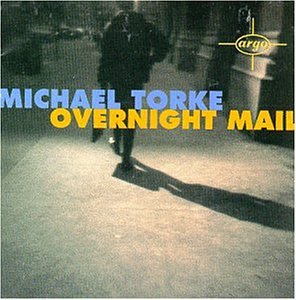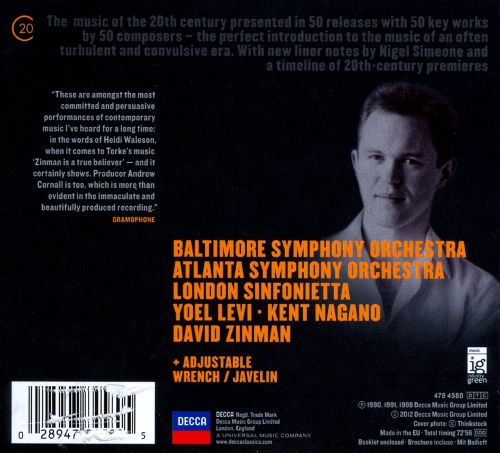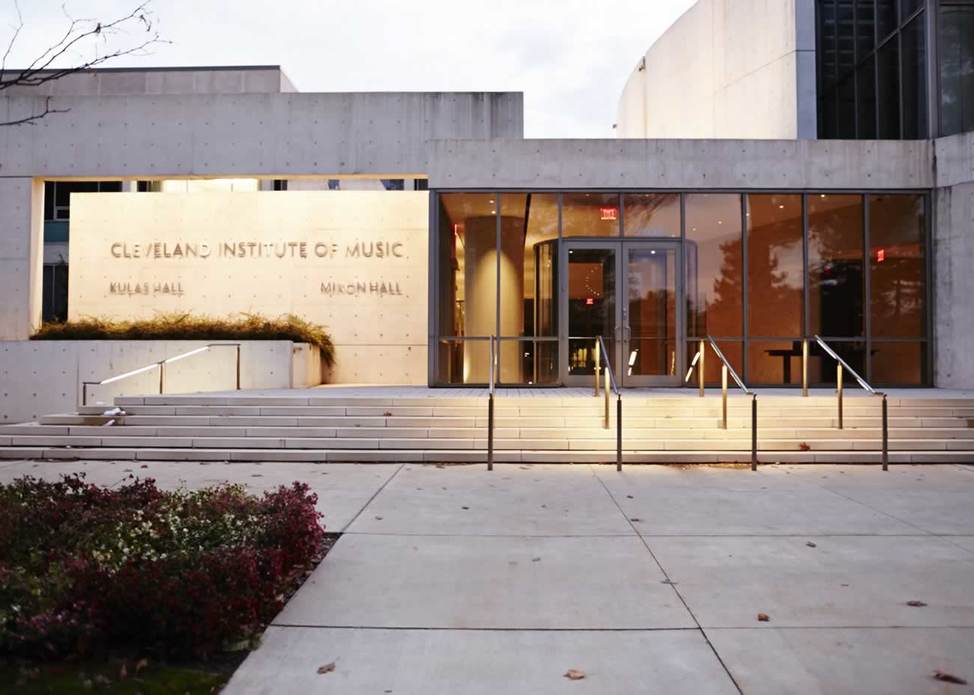A star in his 20s, midlife composer faces a shrunken world
mainThe excellent Michael Torke, now in his 50s, assesses the way the cookie crumbled for Frank J. Oteri:

“All those industries have collapsed,” he claims. “Boosey is a ghost of what it was. If you’re a composer signed by Boosey, the kind of promotion that they would do for you today is a fraction of what they did for me back in the ‘80s. They worked hard on my behalf and I’m so grateful. It was just thrilling what they did. … And at one time, there were the big record labels. They still exist, but thanks to the digital revolution that all has collapsed, too. … There were these big institutions that were gatekeepers and it was highly criticized, because there were the select few and if you were a Boosey & Hawkes composer, you were suddenly promoted around the world. If you had a record contract, people knew of you. If you didn’t, what options did you have? So it seemed really undemocratic. It seemed unfair. It seemed like there were tastemakers making these decisions that could be wrong. It seemed almost corrupt. Now we have the democracy of the digital world. Everyone is on equal footing. The problem with that is that who are the tastemakers?”
Full, frank, fascinating interview here.






Well, he says it himself. New music being promoted by big industrial complexes is not the best way to serve the art form, because it should not be a ‘business’. And ‘taste’ is not something being ‘made’ by people who run such businesses. Big promotion budgets to ‘plug’ contemporary composers is a way of compensating for the lack of musical understanding of new music in the concert world, while it is from that practice that interest should emerge, not the other way around. Also here we still see the ideological strategies of postwar modernism at work, while in this case – Torke’s music – the ‘product’ is not modernist at all. Torke is a very fine composer who should not need the ‘music industrial complex’ to ‘push’ his work.
PS:
I had only heard a couple of T’s early pieces which is a music that takes-out one element from Stravinsky and varies it ad infinitum, but happily so. I did some internet research and it appears that his more recent music is harking back to older tonal traditions and a form of romanticism of which tons of scores had been written early 20C and been forgotten with a sigh of relief:
https://www.youtube.com/watch?v=cw5L_orYl8I
Why picking-up the worst kind of late romanticism, the kind that – for that reason – could so easily be incorporated in the Hollywood production business?
So, MT appears to be one of these people who actually would want to write ‘real music’ as regularly performed in the central performance culture, but having difficulty in finding the connection – why? Because that connection is on a deeper level than imitating the surface.
I wish him luck, however…. he is a very musical guy with lots of talent and brilliant scoring technique. That interview on MusicBox is unreadable though, it’s all about ‘career making’ and ‘networking’ and ‘name dropping’ – showing the problem, actually.
The music lacks originality —-it is music that always seems to remind one of” some
other composer”
It seems to me that that is not the problem, but the musical inventiveness, musical quality. Mozart makes one think of Haydn and the other way around, and in Bach we hear all the other composers which were active in his days. In Mahler the sources are almost always on the surface, you could draw-up a catalogue of them, but the inventive treatment turns them into Mahler. The MT piece in the video lacks sophistication and then, the sources irritate.
Originality is not an artistic quality, as this piece was very original in its day:
https://www.youtube.com/watch?v=vjsN2ndqGgg
….. but who cares? Jack the Ripper was original, but is that something to admire?
Inventiveness implies originality , very original ??? one is original or not …….
The response by Mr. Borstlap is total nonsense.
Mrs Milka touches upon a common misunderstanding: there is the originality on the level of the musical language (Chopin) and the originality on the level of handling of the musical language (Brahms). Both these kinds of originality are spontaneous byproducts of a third category: creative / inventive personality, if expressed through the musical language, which defines the quality of the resulting music. Without his creative personality, Chopin would still have been original but uninteresting. Mozart did not invent anything new in terms of musical language, but his creative personality gave everything he wrote the musical value for which we are still grateful: he was utterly original without needing to be original on the level of the musical language.
Even a person without any musical talent can be original, like John Cage. But he did not write music of any interest. And every music of musical value has inevitably its own character and personality, a form of originality. In the end, it is rather a philosophical question.
It may be instructive to refer to the story of the English playwright G.B. Shaw, who also was a music critic, and who condemned every piece by Brahms he wrote about as being derivative, stolen from his betters: Beethoven, Schubert, Schumann etc. etc. and lacking any originality, a pretentious ‘fake’. Later in life he understood that he had missed the true originality of Brahms and regretted his critique.
What nonsense,but this is what Mr. Borstlap believes , and as with all believers there
can be very little discourse …. ref….GBS I do not recall Brahms being called a
pretentious fake ….though GBS did have a low opinion of the composer…but that was
mostly due to GBS being in the Wagner camp at the time . In those days you were
either pro Wagner or pro Brahms . Even to-day there are those who think putting
Brahms in the infamous 3Bs category is a bit much .
As far as I have been told already in Kindergarten, is that all great artists have a name beginning with B: Bernini,Bruneleschi, Bellini the painter, Bellini the opera composer, Bottessini, Bach, Bachmann, Babbit, Bacon, Balakirev, Baldwin, Balzac, Barber, Bakst, Bartok, Bassani, Bartolozzi, Bax, Bataille, Beethoven, Berlioz, Berg, Becket, Biber, Bickens, Bizet, Bocherini, Boieldieu, Böcklin, Bonnard, Bosch, ter Borch, Mr Bean, Borodin, Botticelli, Borstlap, Bowie, Brahms, Breton, Britten, Boulez, Bronté, Bruckner, Burroughs, Brueghel, Buus, Butt, Byrd, Byron. If you don’t have a family name beginning with a B, forget it. As Shakespeare said (he knew too well!): ‘To B, to B or not to B that is the question’.
Great !!!! except for a certain you know who………